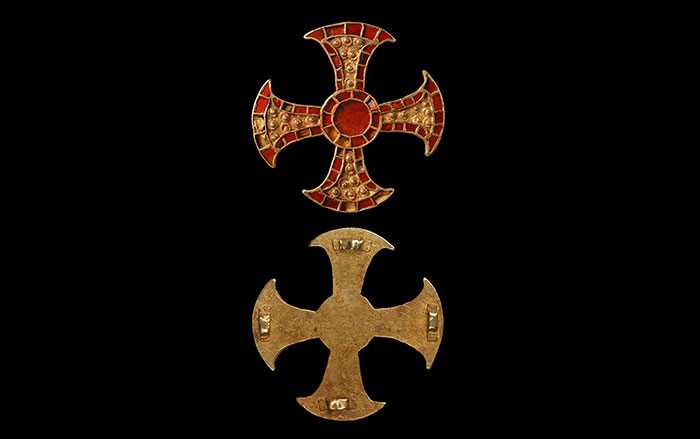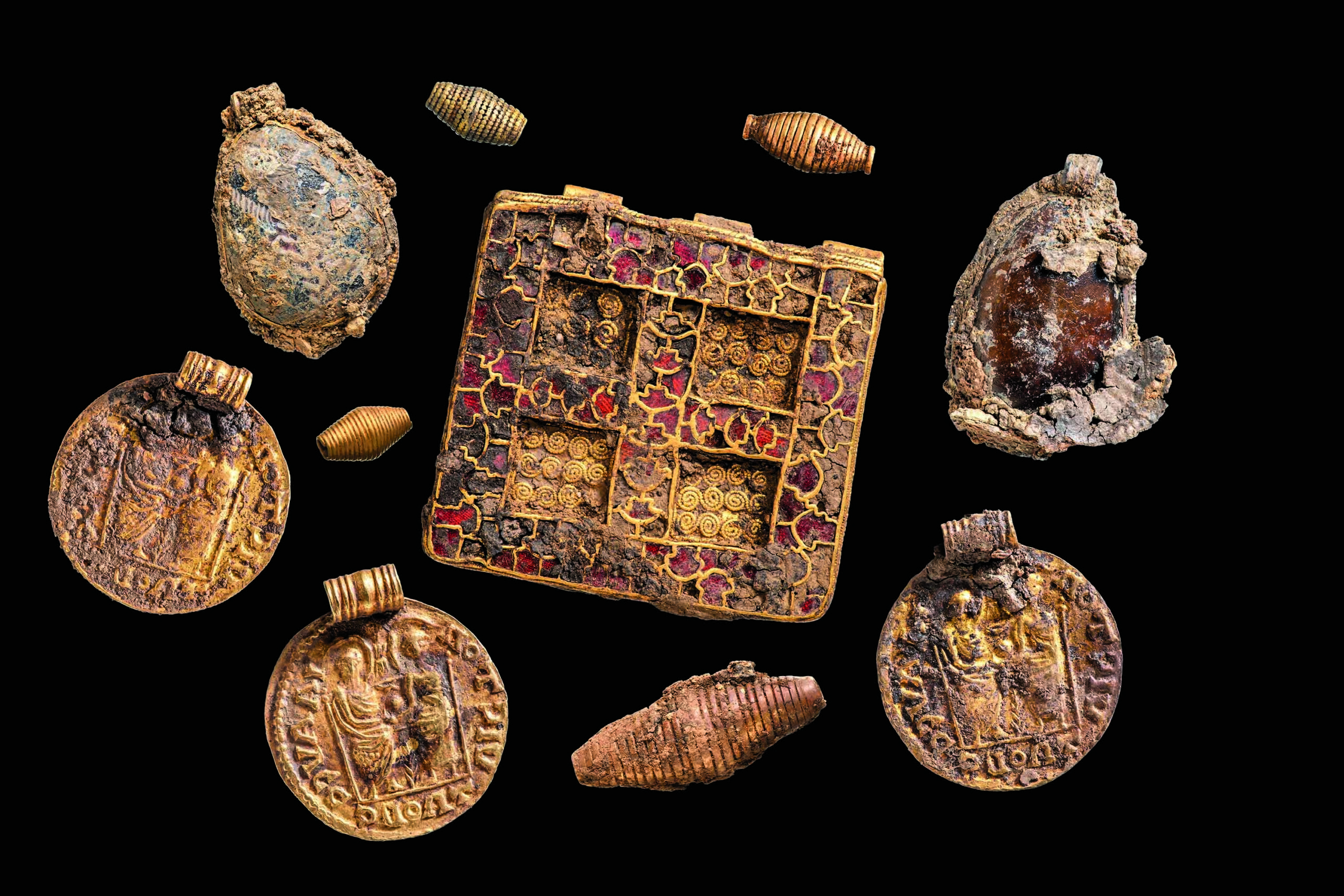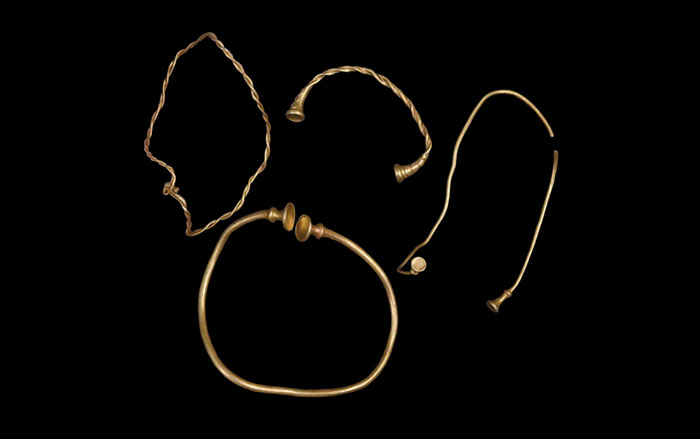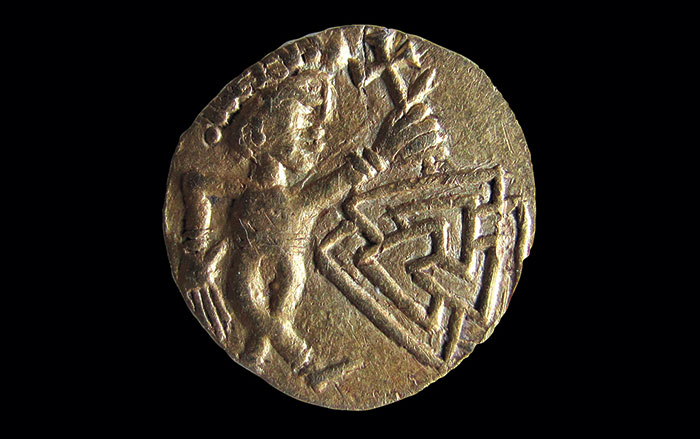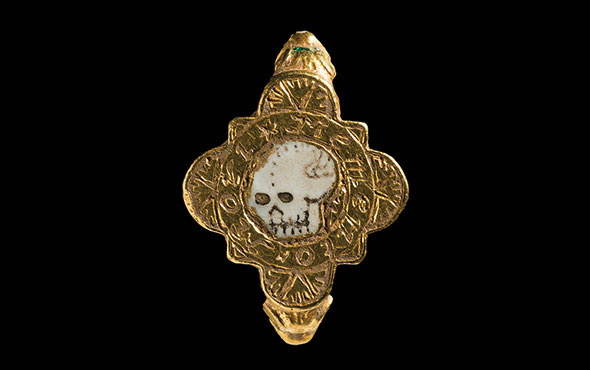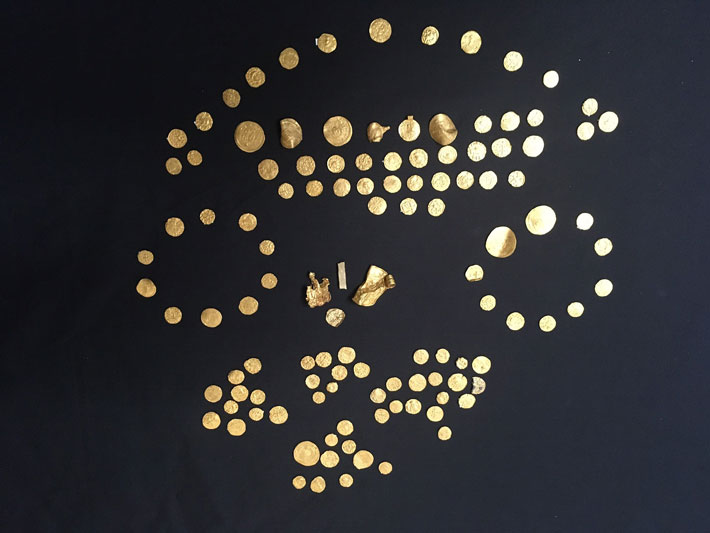
WEST NORFOLK, ENGLAND—The Guardian reports that more than 130 coins and gold objects recovered from a field in eastern England over a period of 30 years have been determined at inquest to come from one hoard buried around A.D. 600. Most of the artifacts were discovered by one anonymous metal detectorist, but ten of the coins were found by someone who was jailed for trying to sell them illegally. The hoard includes two jewelry fragments; Frankish tremisses; nine gold solidi, Byzantine coins worth three tremisses; a gold bracteate, or stamped pendant; and a small gold bar. “This is a hugely important find,” said Gareth Williams of the British Museum. “In fact it is the largest coin hoard of the period known to date. It must be seen alongside other recent finds from East Anglia and elsewhere, and will help to transform our understanding of the economy of early Anglo-Saxon England,” he explained. To read about coins minted for the last Anglo-Saxon king, go to "Norman Conquest Coin Hoard," one of ARCHAEOLOGY's Top 10 Discoveries of 2019.


